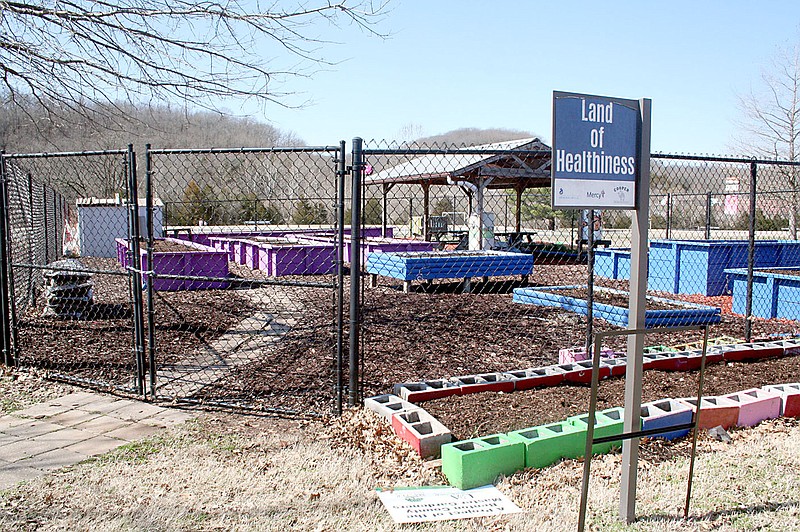A volunteer opportunity has been evolving behind the Bella Vista Mercy Clinic for almost 10 years. The Bella Vista Community Garden is beginning another growing season -- and another season of donating fresh produce – with a group of dedicated volunteers.
The volunteers are led by Dory Hammeke who is a member of both the Bella Vista Garden Club and the Master Gardeners of Benton County. She works with co-leader Minetta McAdams. They work closely with Michelle Jameson of Mercy Health.
When the garden was created in 2014, it was a project shared by Mercy and their Bella Vista neighbors at Cooper Elementary School. A grant from General Mills funded the project.
Several classes of Cooper students worked in the garden, but the timing was never right, Hammeke remembered. Some years student helped plant vegetables in the spring, but when the summer arrived, students weren't available to care for their beds. If there were vegetables to harvest in late summer and fall, the students who planted them had moved on. In 2020, Cooper students were sent home in early spring because of covid and the community garden was worked by adult volunteers with some help from a couple of home school families.
Hammeke, who also volunteers at Cooper, knows that students benefit with a hands-on gardening experience, so this year their involvement will be a little different.
"The plan is for them to plant pollinator flowers on the east side of the fence," she said. She's helping some classes start seeds for the flowers in their classroom. The students will be able to care for the flower bed all summer since it will be located outside the fence.
Meanwhile, adult volunteers have already been meeting to plan this year's garden, she said.
Many of the vegetables that are grown in the garden are donated to a Little Free Pantry inside Mercy, so the planners considered what vegetables are the most practical for that use. Since there is no refrigeration for the pantry items, some vegetables like lettuce were ruled out.
Some crops, especially tomatoes and green beans, are high value and easily prepared by recipients of the free produce. They will also grow squash, cucumbers, carrots, and possibly kale and spinach. There will probably be onions and garlic as well, she said.
Some of the volunteers are members of the Master Gardener group which requires members to complete a certain number of hours on sanctioned projects. The Community Garden became a sanctioned project two years ago. Master Gardeners often have their own vegetables growing at home so they are happy to donate everything they raise.
"The Master Gardener sanction has been a boon to the garden," she said. "It brings in more volunteers and a tremendous amount of knowledge."
With experienced gardeners around throughout the summer, pests can be spotted and dealt with before they inflict too much damage to the plants.
There are other volunteers who "adopt" beds in the Community Garden because they want to grow their own vegetables but there's no space in their own yards. Those gardeners may donate a portion of their harvest to the pantry and take the rest home for their own use.
"There are a lot of smart things about that garden," Hammeke said.
The Community Garden is fenced in so deer are not a problem and there's irrigation for the beds. There's a pavilion that was built for use as an outdoor classroom and a rain barrel collects water from the pavilion roof. When the irrigation system was out of service for a time last summer, the rain barrel water became important for irrigation. There's also a shed so volunteers can store the tools they need to care for the beds.
The beds inside the garden were built at various heights to make them accessible to almost everyone.
There are about 12 volunteers working this year, she said, and there are more people than beds available for adoption. That's why Hammeke is hoping to speak to the city about developing another community garden, with a similar layout and amenities.
"Lots of people are looking for a space to garden," she said. With the high costs of food, she expects interest to continue to grow.

